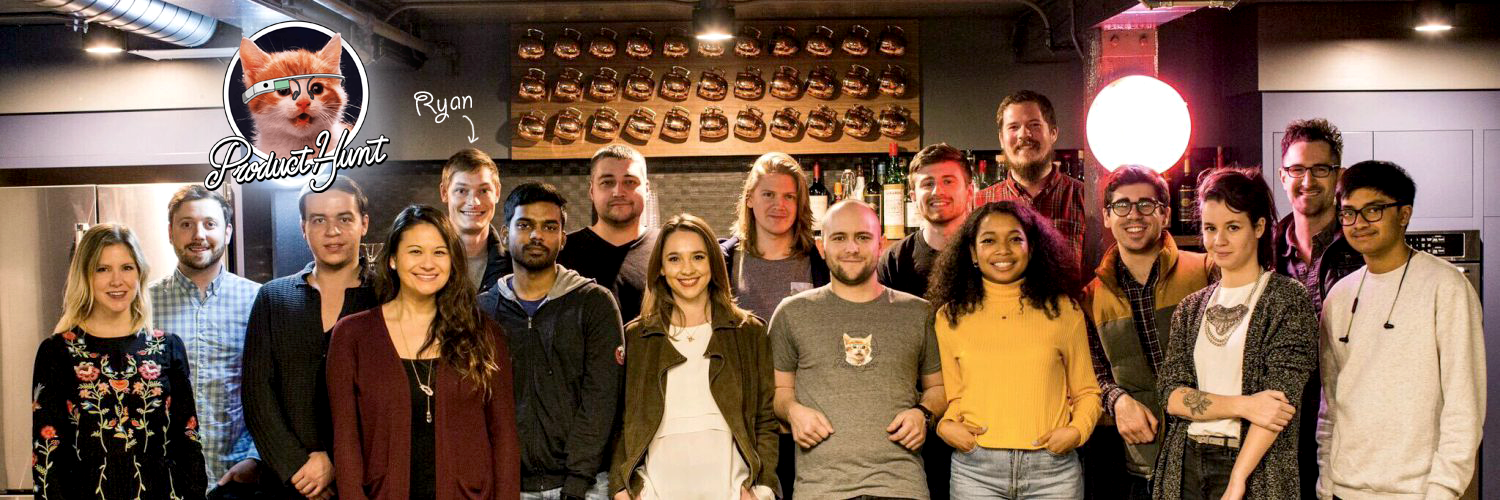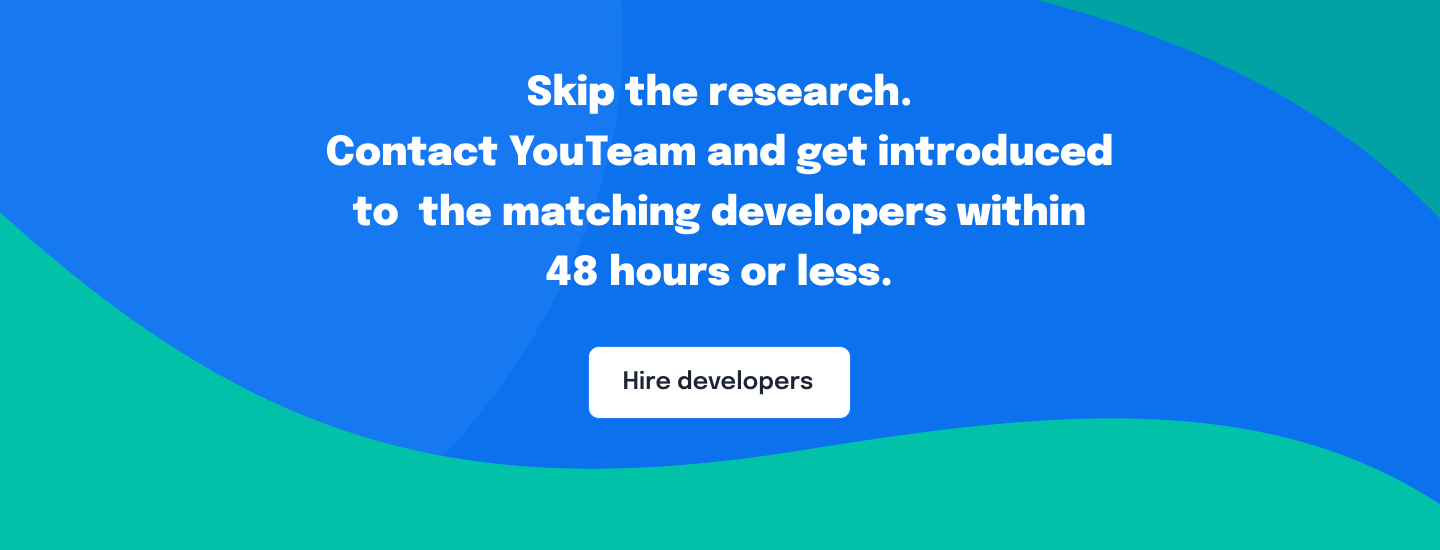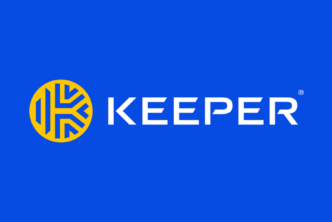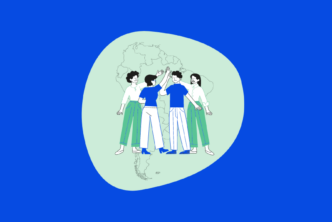
Ryan Hoover is the founder of Product Hunt, a community platform for people sharing, upvoting, and geeking out about new latest mobile apps, websites, hardware projects, and tech creations. Their team of about 20 members is distributed across three continents and seven time zones. Ryan wakes up at 5 am every morning to catch up with his teammates in London, Bulgaria, Belgium, Paris, and India. He believes being passionate about the product and autonomous in self-managing are the key soft skills when hiring a remote specialist. In this exclusive interview with YouTeam Co-founder and CPO Yurij Riphyak, Ryan also shares his thoughts on how to attract the best talent from the community built around the product and how to align the product vision with everyone on the remote development team.
Yurij: Thank you very much for sparing some time for this interview! What I know is that Product Hunt has been relying on a remote, fully distributed team from the very beginning. Is that correct?
Ryan: For the most part, yes. We’re headquartered in San Francisco with five of us. The rest of the team is distributed across the world.
Yurij: Right, so you had like a core team in-house, like founders, C-level and team-leads in-house, and then you have most of the engineers building the stuff remotely. Is that more or less the case?
Ryan: Not entirely. We have people in every role spread across the world, including engineering, design, and community.
Yurij: All right. Geography-wise, where are those remote team members based?
Ryan: We have a teammate in Paris, few in London, also a few teammates in Bulgaria, one is in Belgium, two in India and others are spread across the U.S.
Yurij: Sounds like a fully distributed team. Did you have any parts of the team co-located, like several engineers or several designers sitting together in one office?
Ryan: Yeah, actually we have 3 people in Bulgaria that sometimes work in the same coworking space together, but not all the time, so it’s not like a headquarter per se.
Yurij: How did you find them? What was your procedure for recruiting those remote workers?
Ryan: Most of our hiring came through our network. We often hired people we had worked with in the past. For example, on the engineering team, in the beginning, Andreas (ed. Klinger) had worked with a few people before, he worked with Rado (ed. Radoslav Stankov) who joined us from Bulgaria. In London, Emily, who’s been on the team for almost three years now, had known Abadesi for a long time and she joined us about 6 months ago. So a lot of this was through our networks.
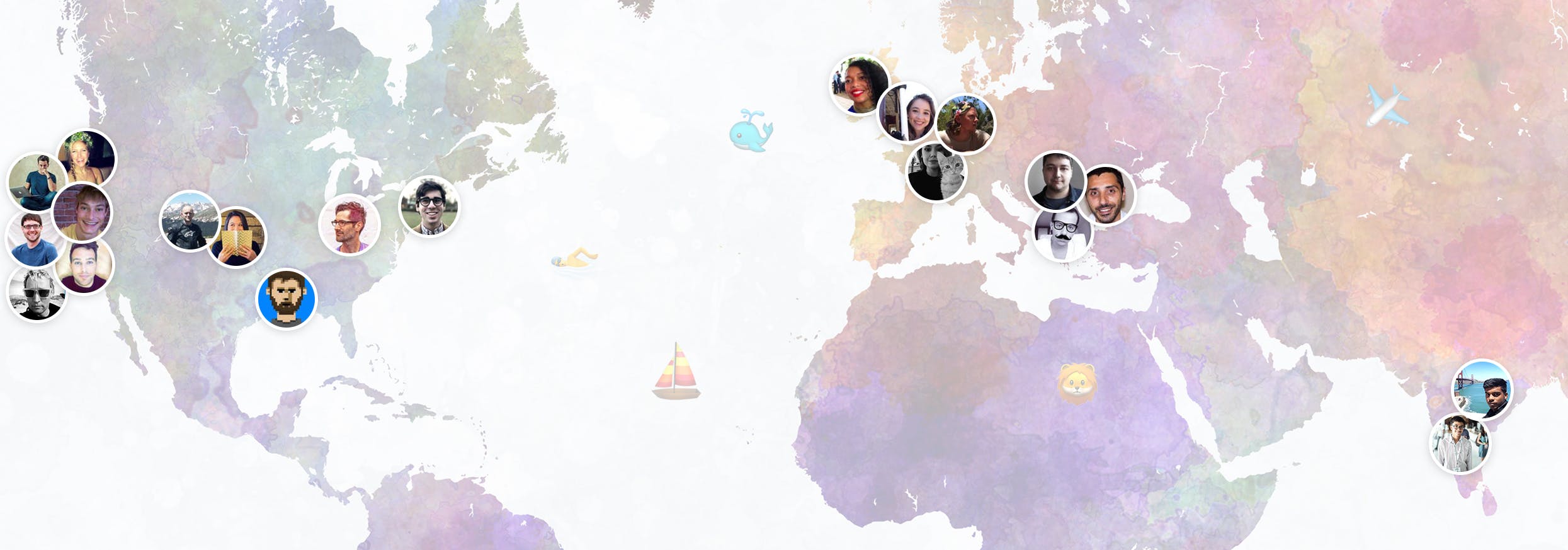
Yurij: Right, so you never used any platforms or portals like Upwork, Toptal, RemoteOK or anything like that?
Ryan: We primarily hired people we knew already although a few teammates came through AngelList’s talent platform.
Yurij: For example, Bryan from Zapier told me that their main channel has been Linkedin. They’ve been looking for people with relevant skills there and then reached out to them proactively saying, “Hey, we’re Zapier, do you want to work with us?” So for you, it was different, right?
Ryan: Yeah, a lot of it’s been through networking and AngelList. We’re getting hundreds of people applying within like a week, so we also have to process all of them.
Yurij: Right, now the brand works for you well and everyone knows what Product Hunt is. I’m sure this really helps you to be picky and to be able to attract the best talent. But in your early days, in your humble beginnings, how did you convince the really good engineers to join your team?
Ryan: Since we’re building a product that people in technology use, a lot of people from engineers, designers, to marketers and community managers – all those people are on Product Hunt. So we reached out to our community and hired people that were already actively participating and excited about Product Hunt. That’s one of the reasons we don’t post a job – we brought it up on the social level. We have this indirect relationship, and it allows us to attract really good, talented people.
Yurij: When you are interviewing an engineer for Product Hunt, besides, obviously, their coding skills, what are the things you look for in a candidate?
We hire people that are passionate about what we’re building and autonomous, a key trait for our distributed team. – Ryan Hoover
Ryan: We try to actually understand are they excited and passionate about what we’re building – simply are they connected to Product Hunt, are they using it, are they visiting it, are they contributing in some way and sort of related to that. A lot of people who have joined the team are people who are either former founders or people who enjoy side projects. And the reason we’re looking towards people who are working on side projects or who have kind of history of building and making them, and/or being a maker in our community. In general, it aligns a lot with our culture. Very much like curiosity, it’s actually sort of a word that we use to describe our culture, internally and also within the community, and also kind of willingness to try and build new things and experiment.
We also look to hire people who are very autonomous. We’re a pretty small team of about 20 people, and as a result, we kind of expect everyone to be self-managed, especially in a distributed team, when you’re working from home or coffee shop. We expect people to be responsible and also have really good ideas and come to the table with suggestions. We try to bring people on that are autonomous, can work with the team, come up with new ideas, experiment, and build new products.
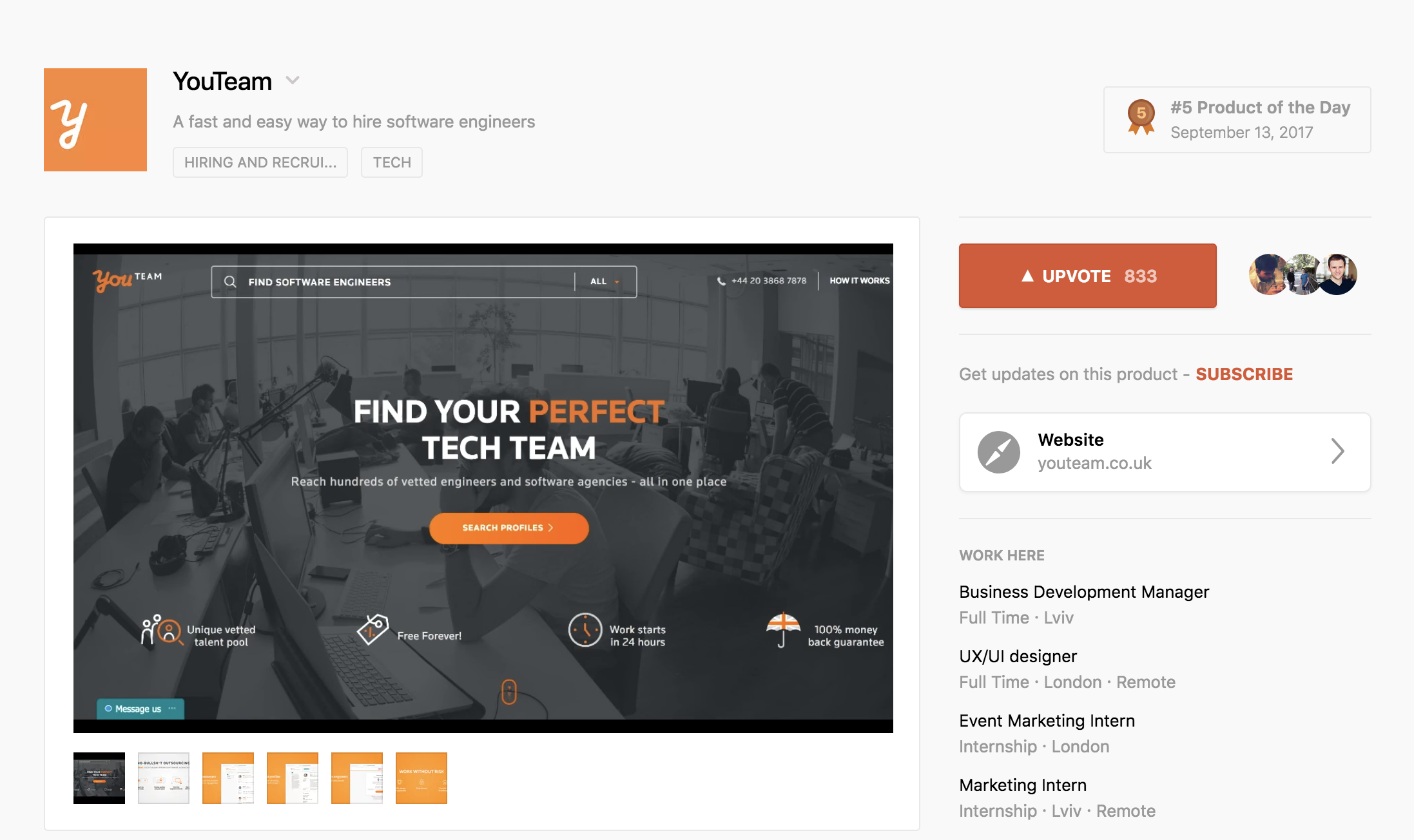
Yurij: If let’s say, I’m a candidate for your team – how do you know that I actually have these soft skills, that I have this curiosity component to my character? Are there some specific questions you ask?
Ryan: I ask them questions like “What have you done on the previous job or your current job?” and try to understand what they worked on, what was their motivation and excitement about that, and what role they were playing. Other things are like “What products did you work on in the past that you’re excited about? What did you learn from those projects?” For example, side projects can be an illustration of something that people work on for fun and out of passion. Having a sort of intrinsic motivation to build things is important for our internal team culture, and to asking them questions like that should be helpful.
Yurij: Yeah, that makes sense. You know, there are urban legends about tricky questions some companies ask at job interviews. One famous example is Google’s question about the glass ball. Do you have any tricky questions that you can pull out of your sleeve, just to surprise the candidate somehow?
Ryan: I don’t think we have any tricky questions. How I generally approach interviews is a conversation and trying to get to know the person, and not trying to like trip them up in any way. Of course, I’m doing my best to understand how they can fit within our team and if they are able to do what we’re looking for, but I avoid those tricky questions.
Yurij: What would be your advice for companies which are currently hesitating with a strategic choice whether to go forward with hiring in-house or going for a remote team in the first place? Would you advise everyone to have a remote team or are there certain points to consider?
Ryan: When starting a startup, there are a lot of best practices that you can read in blogs on every subject. So I wouldn’t ever say that “oh, a distributed team or a remote team is the only way or the best way to start the startup” and sort of. There are certainly some pros and cons of managing a distributed teams.
The hardest thing for distributed teams for very early-stage startups is a communication. When you’re working with a remote development team, you can’t really have the same level of communication when you’re trying to figure out what you’re actually building, what’s the mission, vision, and all that kind of stuff. However, once you set up everything and have a good dynamic in a team, it’s easier to collaborate, do more iterations than in a brand new product definition.
Going for remote you get access to the world’s talent while traditional companies are limited to 1% of it.
Generally, there are so many pros of building a distributed team. One of the biggest is that you get access to the world’s talent. If we think about traditional companies, you are limited to a very, very small percentage of people joining your team because they’re not located in the same city as you are or they just cannot relocate. So you’re already limiting yourself to, say, less than 1% of the world that could be working with you. Another reality is that for a company like ours in San Francisco, there’s a lot of heavy competition, especially for engineers and designers.
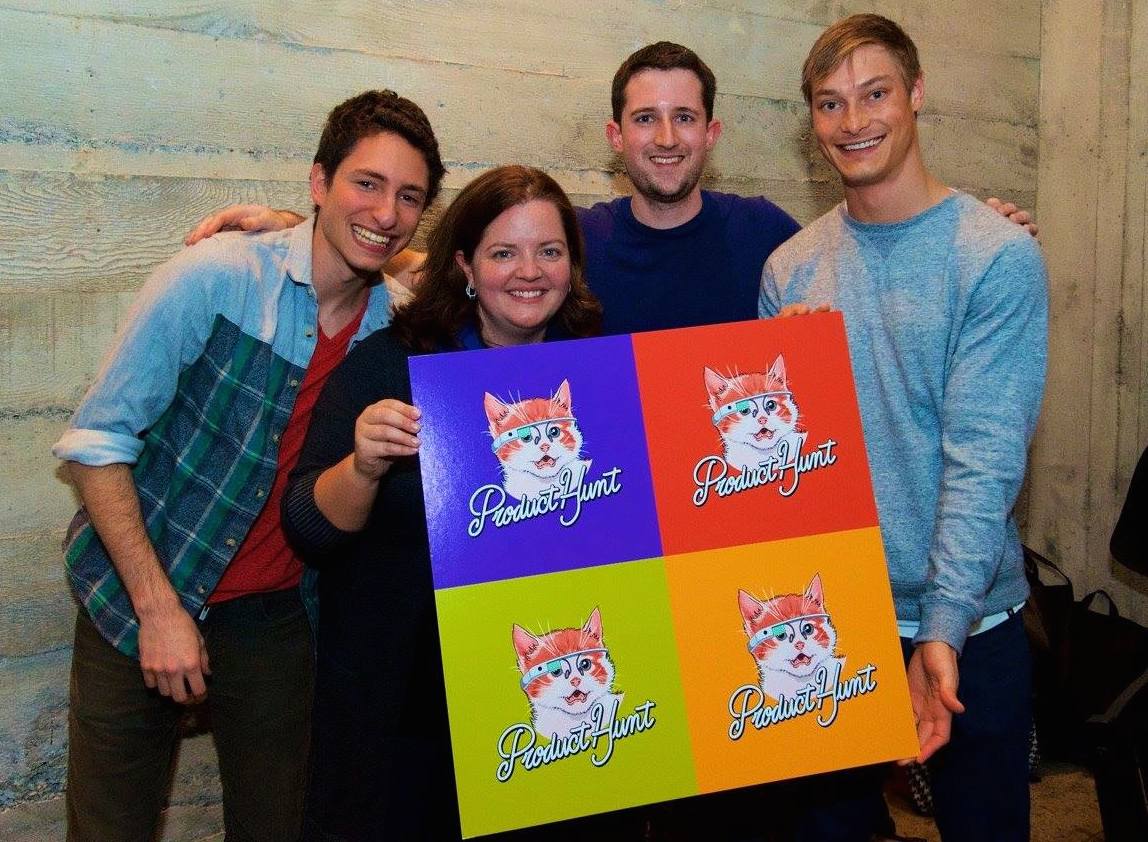
Yurij: Sure. Getting to the process of actual work with a remote team – you mentioned you have people on different continents. You have India, you have Europe, you have America, so it’s all spread between different time zones. How do you cope with that? I mean, how do you manage these different time zones? Do you have any tricks for that, any tools, any practices that you would like to share with other companies?
Ryan: A good question… I don’t think we have any specific tricks or apps, to be honest. Some benefits of having people in different time zones is that when I wake up in the morning, some of the engineers, for example, like Bulgaria or India, they’ve already been working for a while, so I wake up and basically push some things to production, and there’s already some progress that I can catch up on.
The most important thing is ensuring that everyone has all the questions answered first and that there’s alignment. This actually goes back to what I said before – about hiring people who are autonomous and also have some product sensibility because the work cannot wait 6 hours for me to wake up to have me answer the question. If you don’t know the answer, then we’ve done a bad job communicating. If a question comes up that you don’t predict, you just need to make a decision, and I need to trust in you to run with that decision. It comes back to who you hire and putting things in a line. For example – we don’t use it for every single thing – but a lot of times we have product briefs which are essentially very short overviews of the product definition, who the customer is, why we’re building it, and other things which can help guide engineering, design, and other people to get a better perspective on how to fill in the blanks when I’m not online to answer a question or provide input.
Yurij: May I ask what time do you usually wake up?
Ryan: I wake up between 5 and 5.30 a.m.
Yurij: That’s what I expected. For me it’s about 6 am, because we also have a distributed team with a back office in Ukraine and yeah, it’s like you have to shift your hours, don’t you?
Ryan: Yeah, kind of the reason why I wake up so early. If I woke up at 8 am, I would have a very little overlap with India and Bulgaria, and some other countries. However, if we had a centralized team, I’d still be up early just because of the nature of our product since a lot of people are launching things early in the morning.

Yurij: Exactly. So you’re still working full-time for Product Hunt? Or do you also have any side projects already?
Ryan: Yeah, full-time at Product Hunt. I’m also investing on the side out of Weekend Fund, a $3M fund I raised last year.
Yurij: I’m asking because my last question would be the traditional one that we ask all founders. We all are thinking about the ideas of something next that we would be building if we are less busy with the current project. I’m sure you have something like that in your mind, so can you share it? Like what would you build if your time wouldn’t be hundred-percent occupied with Product Hunt?
Ryan: That’s a good question. We all come up with ideas like how I wish I could build that, I wish to try that. One thing I’ve been thinking a lot about, recently, and I’ve been tempted to work on as a side project is a personal CRM, and I think there’s a lot of really interesting examples and approaches to help people have done that for me.
The reason why I’m interested in a personal CRM space is that there are different use cases when I need this tool in my life to get a kind of administration – what am I doing, what am I investing. I meet some founder and almost every single instance of that would be like “Hey, what investors should I talk to” and “Who might be interested in this startup that I’m building?” Most people simply recall those they last interacted with. And the reality is that people have over time the folks building the network, and there are certain investors and certain people who would be most appropriate and most relevant to make the connection but it’s hard to remember all those people sometimes. That’s my use case.
Organizing and inviting people to events in specific cities is also another use case. But a long story short, instead of focusing on building personal CRMs there are relationship managers, which are more designed to help you strengthen your existing relationships with people. What I really want is basically a people search engine – so maybe it’s a better description of an interpersonal CRM. I want a search engine of people that I know and that I’m connected to, like which city are they in, are they an investor or a founder, designer, engineer, etc. If they’re an investor, what stage they are interested in, what stages do they invest in… I think it’s probably a really good niche tool for a relatively small audience, a few thousand people.
Yurij: Well, for me it seems partially like kind of the original idea behind Facebook, maybe because it was about staying in touch with your friends before Facebook became something very different from that. So I don’t know, maybe it’s not a niche product potentially, maybe it’s something like really massive that you have in your mind. Who knows – I hope one day you will build this.
Ryan: I have some ideas that won’t take much work – it’s actually something that I could do without even writing a single line of code, I think. There are so many tools like Zapier that you’re familiar with, which make it really easy to build essentially a product with very little effort and no code.
Yurij: Totally. This is my case because I do code but it’s like I’m more on the product and design side and for me, this is like a lifesaver. So now you can build quite comprehensive and sophisticated products already without a single line of code. Well, Ryan, thank you very much indeed, it’s been a great interview. I wish you lots of inspiration.


